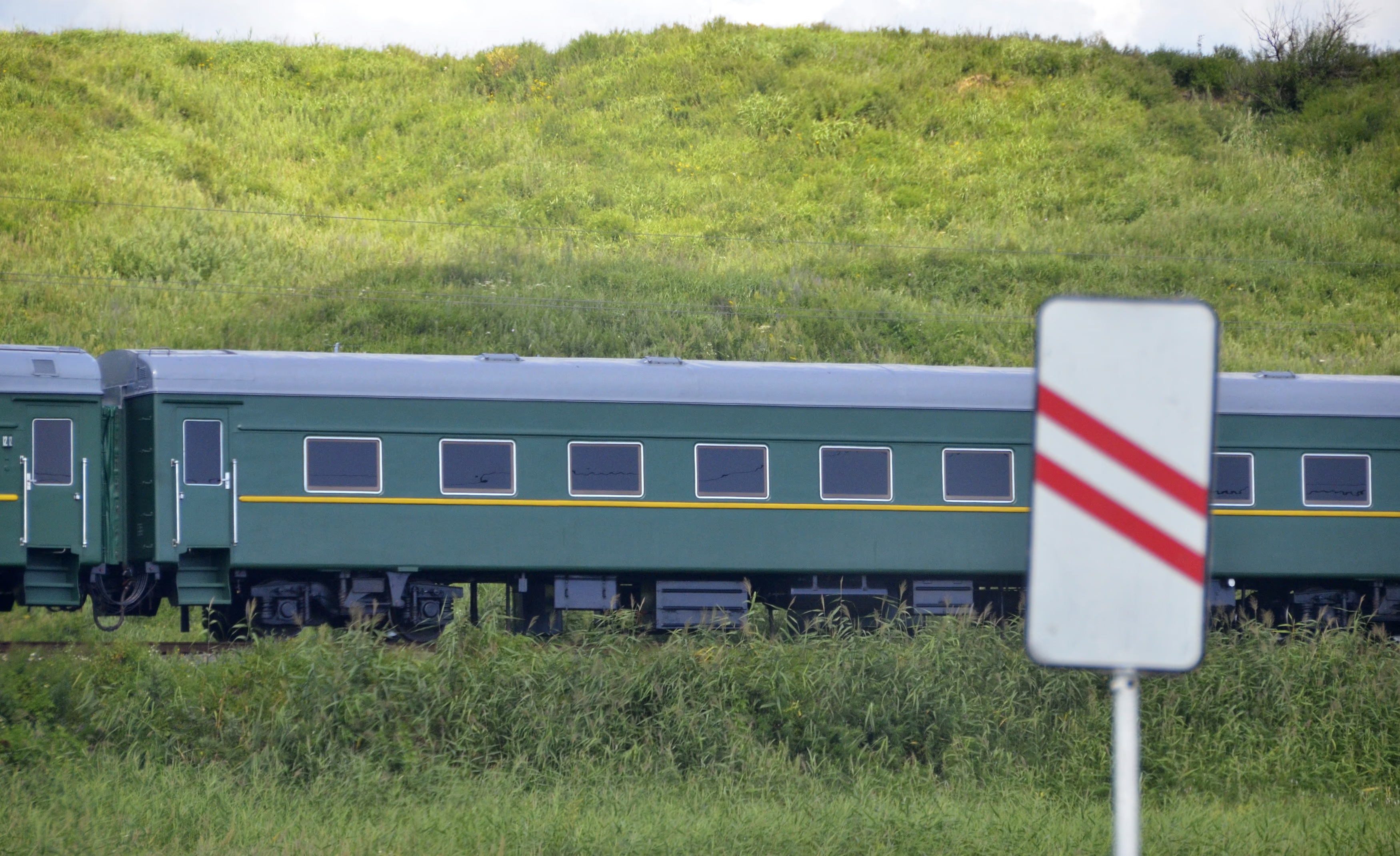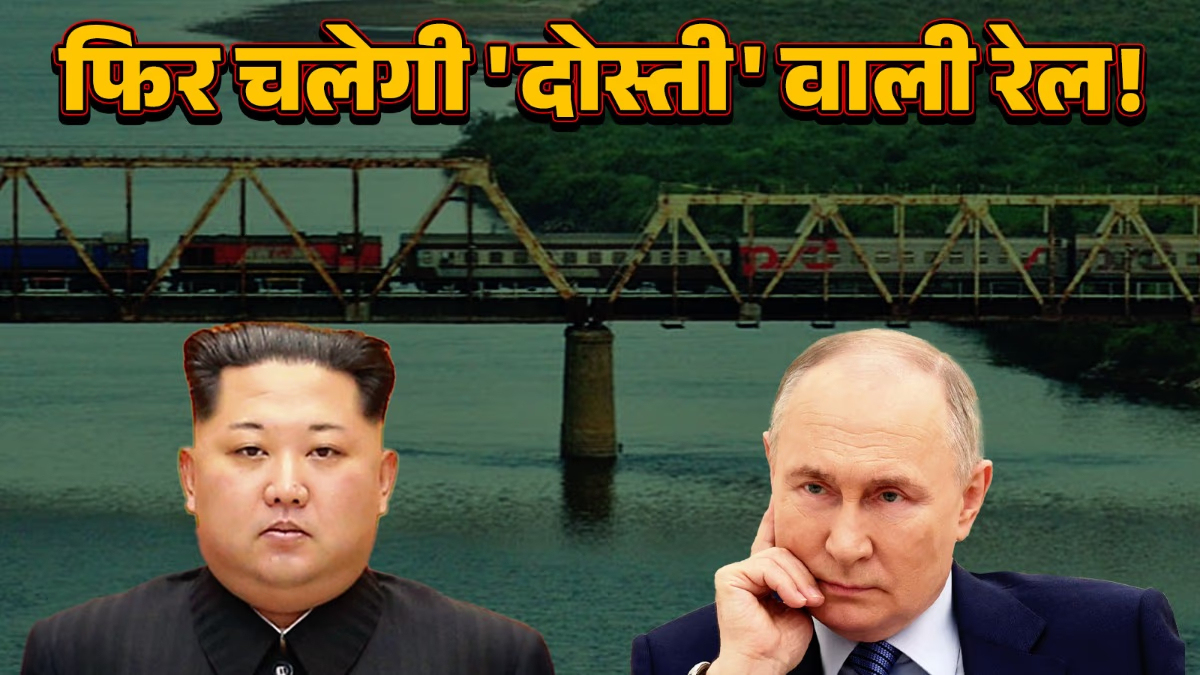The train window transforms into a mini theater as you rest your head on your elbow and gaze outside from your cozy cabin. The world’s stunning landscapes unfold before your eyes, changing every 10 minutes in a mesmerizing sequence. Such a long, leisurely, and thrilling train journey awaits you once again.
The 10,000-kilometer-long train journey between Russia and North Korea is set to resume. Traversing through gorgeous valleys, snow-laden valleys, rivers, and mountains, this train voyage will offer tourists an extraordinary experience. The journey stretches over 10,214 kilometers, revealing the vast Siberian vistas of Russia, forests, mountains, and 16 major rivers. Passengers can marvel at natural wonders like the Ural Mountains and Lake Baikal, offering a delightful visual spectacle.
Crossing eight time zones, travelers can enjoy a unique experience of time and spatial change—a thrilling adventure in itself.
This train journey between Moscow, the capital of Russia, and Pyongyang, the capital of North Korea, was suspended during the coronavirus pandemic. Now, as normalcy returns, this journey is being resumed.
Geopolitical and Military Significance
This time, the train's resurrection carries more military significance than commercial.
Amidst the military struggles with Ukraine, North Korea has emerged as a vital military ally for Russia. At the end of April, North Korea confirmed it had dispatched over 10,000 soldiers and weapons to aid Russia in its conflict with Ukraine. This military aid proved crucial for Moscow in reclaiming Ukraine’s western Kursk region.
Since the comprehensive strategic partnership treaty was signed by President Vladimir Putin and North Korean leader Kim Jong Un last year, Moscow and Pyongyang have increased their cooperation in military and other sectors.
Russia now considers North Korea an essential partner. This explains why both nations are resuming the train service after five years.

Source: aajtak
Recently, Russian President Vladimir Putin publicly thanked North Korean leader Kim Jong Un for dispatching troops to assist the Russian army in the Kursk region, affirming reports from Western and South Korean intelligence agencies that North Korea is indeed providing aid to Russia.
The two nations already operate a passenger rail service connecting Vladivostok in Russia’s far east with the North Korean port city of Rason, and they are also linked by a cargo rail network, though Russia does not disclose the volume of trade it engages in with North Korea.
Accelerating Military Supplies and Logistics
The message behind reopening this route is clear: Russia and North Korea wish to take their relations to new heights. This railway route will facilitate and expedite the supply of military weapons, ammunition, and other materials between the two nations. Satellite imagery reveals North Korea is already sending ammunition and arms to Russia, including nearly 5 million artillery shells. This rail service will solidify this supply line, fulfilling Russia’s needs for the Ukraine conflict.
Countering Western Sanctions
Both Russia and North Korea face immense pressure from Western sanctions. This rail route offers both countries an opportunity to bypass sanctions and intensify economic and military collaboration. For instance, Russia is supplying crude oil and technical assistance to North Korea while receiving weapons and soldiers from North Korea.
Trading resources via the rail network will not only strengthen both nations’ economies but also mitigate Western pressure.
This railway service reinforces Russia and North Korea's strategic position in Northeast Asia, especially providing them strength against the alliance of the USA, Japan, and South Korea. A few days ago, North Korean Foreign Minister Choe Son-hui stated that this partnership is an attempt to balance Western influence.
The alliance between Russia and North Korea reflects their effort, alongside China, to establish an alternative regional security framework that could challenge Western dominance.
The 10,000-Kilometer Journey: An 8-Day Expedition
Russian Railways announced an agreement with North Korea's rail ministry to resume service twice a month between the two capitals starting June 17.
The 10,000-kilometer rail journey takes 8 days to complete, marking it as the world’s longest direct rail journey.
On Tuesday, June 17, a nonstop train will depart from Pyongyang for an eight-day trip, arriving in Moscow on June 25. The return journey will commence from the Russian capital on June 26, reaching Pyongyang by July 4.
This route will operate twice a month—on the 3rd and 17th of each month—with the return journey scheduled for the day after arrival.
This endeavor forges a rare cultural bridge between Russia and North Korea, both renowned for their mysterious and unique cultures. Experiencing a secluded country like North Korea typically isn’t accessible for tourists, making it an exciting prospect. However, it remains to be seen if Russia and North Korea will permit foreigners to travel on this train.
The train traverses 86 cities and 142 stations, offering glimpses of Russia’s rural and urban life. Due to its passage through Siberia, this route is known as the Trans-Siberian Railway—a feat of engineering that commenced in 1891 and connected Moscow to Vladivostok by 1916.
North Korea is also set to launch another rail service from Russian city Khabarovsk, near China’s northeast border, which will resume in two days.
The Korai State Railway will operate these services from the North Korean side.
Passenger rail traffic between Russia and North Korea was suspended in February 2020 at the onset of the COVID-19 pandemic.




